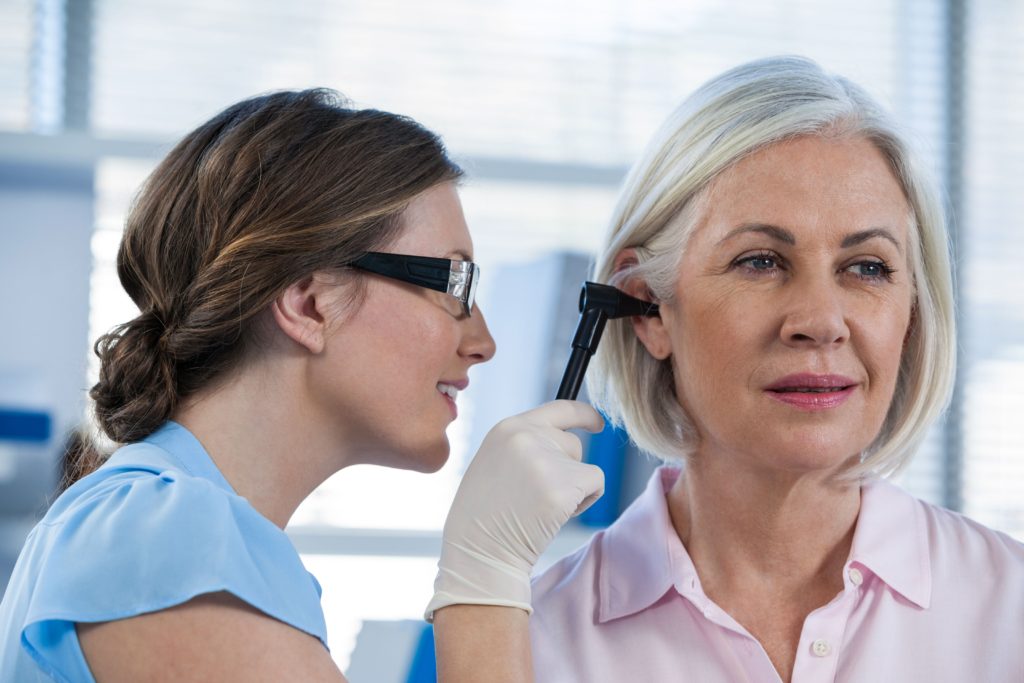Audiology is a niche profession, meaning the skills you learn as an audiologist are very specific and specialized. The beautiful thing about audiology is that your path is fairly straightforward. With hard work and know-how, you will be able to set yourself apart from other candidates and achieve your dream of becoming an audiologist.

How do I prepare for a degree in audiology?
- Request audiology program information. This is a great way to familiarize yourself with the prerequisites and requirements to get into the program of your choice. While many programs share some of the same requirements for admission, each program will offer different learning options. Some programs are geared more for traditional students, while others will involve more online coursework. Requesting information from the audiology program you want to explore helps you to make a wise, informed decision about your education.
- Gain hands-on experience. A great way to learn more about audiology is through job shadow and volunteer experiences observing an audiologist. Though not a requirement to get into all programs, hands-on experience is priceless and also looks good on your application.
- Interview an audiologist. Most audiologists would be more than happy to share their experiences and expertise with you. This is also a great way to open doors for a potential job shadow.
- Stay connected with professors and audiologists. Most audiology programs require you to have at least 3 letters of recommendation from professors and audiologists. By staying connected you can ensure they’ll write a stronger letter of recommendation for you.
- Begin completing prerequisite courses. Prerequisites can vary from program to program but generally includes classes like: phonics, human anatomy, hearing science, language science, and language development. Typically, audiology programs like to see that you’ve taken these courses in the last 5 years and gotten a “B” grade or better. Due to the specialized nature of audiology, the best degree to pursue is a Communication Science Disorders degree.
- Choose a major that meets most prerequisites. Audiology requires that you have a bachelor’s or master’s degree to apply. One option that meets the prerequisites for all audiology programs is earning a bachelor’s degree in Speech Pathology-Hearing Science or another Communication Science Disorders degree. This degree streamlines the process to get into the doctorate level program of your choice.
- Take the GRE (Graduate Record Exam). Most audiology programs require you to take the GRE. Be sure to check program requirements where you hope to apply.
What are my speech therapy degree options?
- Speech Pathology-Hearing Science or Communication Science Disorder Bachelor’s degree: A bachelor’s degree in SPHS or CSD is specifically designed to prepare you to enter an audiology program. These degrees significantly reduce the amount of prerequisite coursework needed to be accepted into an audiology program.
- Doctorate of Audiology (AuD): This 4 year graduate-level degree is required to practice as an audiologist in the United States. You are able to evaluate and treat speech and hearing disorders with this degree. Coursework often includes in-person classes and labs, online courses and assignments, and clinical rotations.
- PhD in Audiology: Audiologists interested in research or teaching at the university level should earn this degree. Requirements for this degree vary significantly based on the program you choose and the amount of experience you have in audiology.
Wherever you choose to go, be sure the program is accredited by the Council on Academic Accreditation for audiologists.
After completing my audiology degree, what’s next?
Upon graduation you are ready to take the Praxis Exam for audiologists. By passing this exam you are eligible to become licensed as an audiologist in your state. You are also ready to earn your “C’s” meaning you have a Certificate of Clinical Competency in Audiology (CCC-A). This specialty offered by the American-Speech-Language-Hearing Association requires you to complete an additional clinical practicum under the direction of a supervising audiologist if you choose.
Finally, you are ready to find the audiology job that is perfect for you!
Where will an audiology degree take me?
A degree in audiology is meaningful because of the impact you will have on your patients’ lives. You’ll find it rewarding as you do something miraculous each day. In addition, projected job growth for audiologists is 13% over the next 10 years. This means you’ll have a job waiting for you once you graduate. So finding a job that’s just right for you should be a snap. Plus, you’ll earn on average $84,000 a year doing something that you love.